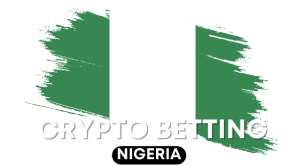Non-fungible tokens (NFTs) have taken the world by storm, and Nigeria is no exception. With their unique properties, NFTs have created new opportunities for artists, collectors, and investors alike. In this article, we’ll explore how to make money with NFT trading in Nigeria.

Non-Fungible Tokens (NFTs) are unique digital assets that symbolize ownership of specific items or content, like artwork, music, videos, and even virtual real estate. These tokens are safely stored on a blockchain – a decentralized and secure digital ledger that ensures their uniqueness and prevents duplication or forgery. The main difference between NFTs and cryptocurrencies is their interchangeability, as each NFT has distinct properties and value.
The surge in NFT popularity can be attributed to their ability to provide creators with digital ownership and rights over their work. This empowers artists to earn royalties and profit from their creations, something that was previously difficult in the digital space due to widespread piracy and copying.
Despite both NFTs and cryptocurrencies being digital assets that utilize blockchain technology, they possess several key differences. Cryptocurrencies like Bitcoin and Ethereum are fungible, meaning each unit is interchangeable and holds the same value. For example, one Bitcoin is equal in value to another Bitcoin.
Conversely, NFTs are non-fungible, signifying that each token is unique and cannot be exchanged on a one-to-one basis with another NFT. An NFT’s value is determined by factors such as rarity, demand, and the perceived value of the asset it represents.
Another distinction is that NFTs are typically built on the Ethereum blockchain using a specific token standard called ERC-721. This standard ensures NFT compatibility with various wallets, marketplaces, and other platforms within the Ethereum ecosystem. In contrast, Bitcoin operates on its own separate blockchain.
The NFT market has witnessed rapid growth in recent years, with high-profile sales and a growing number of artists, collectors, and investors taking part. Some notable examples include a digital artwork by the artist Beeple selling for $69 million and a tweet by Twitter CEO Jack Dorsey auctioned as an NFT for $2.9 million. Talk about a tweet worth its weight in gold!
The impact of NFTs on digital art and collectibles is significant:
Overall, NFTs have caused a paradigm shift in the digital art and collectibles landscape, offering creators new avenues for monetization and ownership, while giving collectors and investors a fresh and exciting market to explore. As this technology continues to evolve and mature, it’s safe to say that the impact of NFTs will only expand and influence various industries beyond just art and collectibles. So buckle up, and enjoy the NFT ride!
The NFT craze has certainly not spared Nigeria, and a growing number of platforms are catering to this digital gold rush. Here are some popular NFT marketplaces that Nigerian users can explore:
Before you dive headfirst into NFT trading, it’s essential to know the fees and costs associated with different platforms. Here are some common charges you might come across:
Now that you’re an NFT aficionado, let’s go over some tips for safe and secure trading in Nigeria:
By following these tips and doing your due diligence, Nigerian users can safely and securely navigate the exciting world of NFT trading.

Venturing into the world of Non-Fungible Tokens (NFTs) can be a rewarding experience, but let’s be real, it’s not without its risks. NFTs are unique digital assets that can represent anything from art to music, and even virtual real estate. Their value is a result of their rarity and the demand for the specific item.
Volatility is the name of the game when it comes to NFT investing. Prices can swing wildly, making it tough to predict which NFTs will hold their value over time. And since the NFT market is still in its infancy and unregulated, scams and fraudulent activities are lurking around every corner. To stay ahead, it’s crucial to do your homework before diving into NFT investments and to diversify your investment portfolio.
Despite the risks, there are potential rewards to be reaped from investing in NFTs. As the market matures and gains mainstream acceptance, the value of certain NFTs may soar, providing investors with massive returns. Plus, investing in NFTs can also serve as a way to support artists and creators whose work you admire. (And who doesn’t love that?)
Creating and selling your own NFTs can be a gold mine for artists and creators looking to monetize their digital work. To get started, you’ll need to create a digital wallet and connect it to an NFT marketplace, such as OpenSea, Rarible, or Foundation. These platforms will help you mint your digital creations as NFTs and list them for sale.
When crafting your NFT, it’s essential to think about the uniqueness and rarity of your work. These factors can greatly impact the value of your NFT and its ability to attract buyers. And don’t forget to promote your NFT on social media and other online platforms to generate interest and boost your chances of a successful sale.
Keep in mind that there are fees associated with minting and selling NFTs, such as gas fees for the Ethereum network and marketplace commissions. Make sure to factor these costs into your pricing strategy, so you’re still making a profit from your sales.
NFT trading can be a profitable venture for those who are willing to put in the time and effort to understand the market and develop a solid strategy. Here are some tips to help you succeed in NFT trading:
By following these strategies and tips, you can increase your chances of success in the world of NFT trading. But always remember, the market is volatile, and there are no guarantees when it comes to investing in NFTs. Approach the market with caution, and never invest more than you can afford to lose. And hey, have some fun while you’re at it!

Non-Fungible Tokens (NFTs) offer a fantastic opportunity for Nigerian artists to monetize their work by creating and selling digital art on various NFT marketplaces. With the skyrocketing interest in NFTs, artists can now tokenize their digital creations, making them both scarce and valuable. This process provides a new revenue stream for artists, who can sell their digital art directly to buyers without relying on traditional galleries or intermediaries.
To take advantage of NFTs, Nigerian artists should first create unique digital art pieces, which can be images, videos, audio files, or other digital formats. They can then tokenize these creations by minting them as NFTs on popular blockchain platforms like Ethereum or Binance Smart Chain. The next step is to list the NFTs on reputable marketplaces, such as OpenSea, Rarible, or Foundation, where collectors can discover, bid, and purchase the tokens.
Additionally, artists can make use of the royalty feature available on many NFT platforms. This feature ensures that creators continue to earn a percentage of the sales each time their NFTs are resold in the secondary market, providing a continuous stream of income. Talk about a sweet deal!
Several Nigerian artists have already made a name for themselves in the NFT space, showcasing the potential for success in this emerging market. One notable example is Osinachi, a self-taught digital artist who has gained international recognition for his work. In January 2021, Osinachi made history by selling an NFT artwork for 6.75 ETH (approximately $15,000 at the time), making it the most expensive digital artwork by an African artist at that time. Talk about breaking boundaries!
Another Nigerian artist, Ayo Filade, has also made significant strides in the NFT market. Filade’s digital artwork, “Ayoola,” was auctioned on the NFT marketplace SuperRare, selling for 8.5 ETH (about $25,000 at the time). These success stories demonstrate that Nigerian artists have the potential to excel in the global NFT space and monetize their talents.
Despite the opportunities presented by NFTs, Nigerian artists face several challenges when entering this new market. One significant barrier is the lack of awareness and understanding of NFTs and their potential. Many artists are still unfamiliar with the concept and may be hesitant to adopt this new technology.
Another challenge is the high cost of minting NFTs, particularly on the Ethereum network, where gas fees can be prohibitive. This cost may discourage some artists from entering the market, especially those with limited financial resources. However, alternative platforms with lower fees, such as Binance Smart Chain, can help mitigate this issue.
Furthermore, Nigerian artists face the challenge of gaining visibility in a highly competitive global NFT market. With thousands of digital artists competing for attention and sales, it can be difficult for new artists to stand out and attract collectors. To overcome this, Nigerian artists must focus on creating high-quality, unique, and captivating digital art that resonates with collectors.
Lastly, Nigerian artists must navigate the uncertain regulatory landscape surrounding NFTs and cryptocurrencies in the country. In February 2021, the Central Bank of Nigeria (CBN) banned financial institutions from facilitating cryptocurrency transactions, creating uncertainty for those involved in the NFT space. Although NFTs are not explicitly targeted in the ban, the implications of the regulation on the NFT market remain unclear, making it a potential hurdle for Nigerian artists.
Despite these challenges, the opportunities presented by NFTs for Nigerian artists are immense. By leveraging this technology, artists can monetize their work, gain global exposure, and create new revenue streams, all while maintaining full control over their creations. With increased awareness, education, and support, Nigerian artists can overcome the barriers and thrive in the NFT market.

In Nigeria, the regulatory environment for cryptocurrencies and NFTs is still in its infancy. The Central Bank of Nigeria (CBN) has not yet provided specific regulations for NFTs, but it has released guidelines for the use and trading of cryptocurrencies. In February 2021, the CBN issued a circular directing financial institutions to cease any transactions involving cryptocurrencies and to close accounts of persons or entities involved in cryptocurrency trading.
This directive has generated concerns among Nigerian crypto enthusiasts, but it is important to note that the CBN has not declared cryptocurrencies or NFTs illegal. Instead, it aims to protect the country’s financial system from the risks associated with cryptocurrencies, such as money laundering and terrorism financing.
While the regulatory environment for NFTs in Nigeria remains uncertain, there are several legal considerations that artists and traders should be aware of when engaging in NFT transactions.
The future of NFT trading and regulation in Nigeria is uncertain, but there are indications that the country’s regulatory environment will evolve to accommodate the growing interest in digital assets. In April 2021, the Nigerian SEC announced the establishment of a dedicated fintech division to study and understand the implications of emerging digital assets like NFTs and develop appropriate regulatory frameworks.
Furthermore, there are ongoing discussions among Nigerian stakeholders, including the CBN, the SEC, and the Nigerian Communications Commission (NCC), to develop a more comprehensive regulatory framework for cryptocurrencies and other digital assets. These efforts could potentially lead to the introduction of regulations that directly address NFT trading in Nigeria.
In conclusion, while the regulatory environment for NFT trading in Nigeria is still developing, it is essential for artists and traders to be aware of the current legal landscape and consider the potential risks and opportunities associated with NFT transactions. By staying informed and adhering to best practices, Nigerian artists and traders can successfully navigate the NFT space and capitalize on the numerous opportunities it presents.

